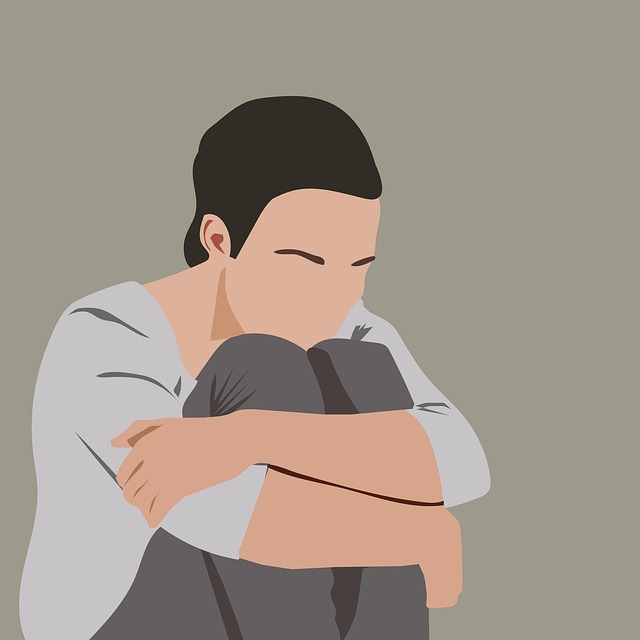The media's portrayal of mental health significantly shapes public opinion, with positive depictions reducing stigma and encouraging support for struggles like depression. Negative stereotypes, however, discourage help-seeking behaviors. A shift towards empathetic storytelling in films, TV, and news is crucial. Realistic representations educate viewers, foster empathy, and inspire proactive mental health measures like self-care routines or enrolling in programs like Littleton Depression Therapy. Littleton Depression Therapy goes beyond traditional treatment by challenging stereotypes and offering comprehensive support for holistic healing through specialized services and mental health education, transforming societal perceptions of mental illness with each successful recovery story.
In today’s media landscape, accurate representation of mental illness is more crucial than ever. The way mental health conditions are depicted can significantly impact public understanding and awareness. This article explores the power of media in shaping perceptions, focusing on the positive role of initiatives like Littleton Depression Therapy. We delve into effective strategies to challenge stereotypes, emphasizing the importance of authentic portrayals for better mental health support and reduced stigma. By examining these approaches, we aim to foster a more informed and compassionate society.
- Understanding the Impact of Media Portrayal on Mental Health Awareness
- Exploring Effective Strategies for Accurate Representation
- The Role of Littleton Depression Therapy in Challenging Stereotypes
Understanding the Impact of Media Portrayal on Mental Health Awareness

The media plays a powerful role in shaping public perception and understanding of mental health issues. Positive and accurate representation in films, television shows, and news coverage can significantly impact how society views individuals living with depression or other mental illnesses. Unfortunately, stereotypes and misconceptions have long been prevalent, contributing to stigma and misunderstanding. This has real-world consequences, affecting the way people seek help and approach their mental well-being. For instance, negative portrayals of depression in media can reinforce the belief that seeking therapy is a sign of weakness, which might deter individuals from pursuing Littleton Depression Therapy or similar treatments.
A shift towards more nuanced and empathetic storytelling is essential to challenging these outdated narratives. By showcasing realistic representations of mental illness, media has the potential to educate viewers, foster empathy, and encourage open conversations about mental health. This can inspire people to initiate important discussions, support friends and family members, and even motivate individuals to take proactive steps for their well-being, such as adopting a self-care routine or enrolling in a community outreach program implementation focused on mood management.
Exploring Effective Strategies for Accurate Representation

Accurately representing mental illness in media is a powerful tool for challenging stigmatization and promoting understanding. To achieve this, creators should collaborate with mental health experts and individuals living with various conditions. This ensures stories are told from authentic perspectives, reflecting real-world experiences. By doing so, media platforms can move beyond simplistic stereotypes, offering instead nuanced portrayals that educate viewers about the complexities of mental illness.
Effective strategies include integrating mental health themes into compelling narratives, showcasing recovery journeys, and providing educational notes to contextualize storylines. Public Awareness Campaigns Development can further enhance these efforts by sharing personal stories, dispelling myths, and encouraging open conversations. Additionally, incorporating practices like Stress Management techniques or suggesting Mental Wellness Journaling Exercise Guidance in media content can empower audiences to take proactive steps towards mental wellness, mirroring the holistic approach of Littleton Depression Therapy.
The Role of Littleton Depression Therapy in Challenging Stereotypes

Littleton Depression Therapy plays a pivotal role in challenging the stereotypes often associated with mental illness. By providing specialized treatment and support, this therapy disrupts the conventional narratives perpetuated by media portrayals. Through its comprehensive approach, it offers not just depression treatment but also trauma support services, fostering an environment where individuals can heal holistically. This personal experience becomes a powerful tool to educate society about mental health, dismantling misconceptions with each successful recovery story.
The therapy’s focus on Mental Health Education Programs Design empowers clients to understand their conditions better. By promoting positive thinking and self-care practices, it equips them with the necessary skills to manage their mental well-being. This proactive approach not only enhances individual lives but also contributes to a more empathetic society where mental illness is met with understanding rather than stigma.
In light of the significant impact media portrayal can have on mental health awareness, it’s clear that challenging stereotypes and advocating for accurate representation are crucial steps forward. By adopting effective strategies outlined in this article, including the role of innovative approaches like Littleton Depression Therapy, we can foster a more empathetic and nuanced understanding of mental illness. This collective effort is essential to creating a society where individuals with mental health challenges are supported and seen beyond their conditions.








